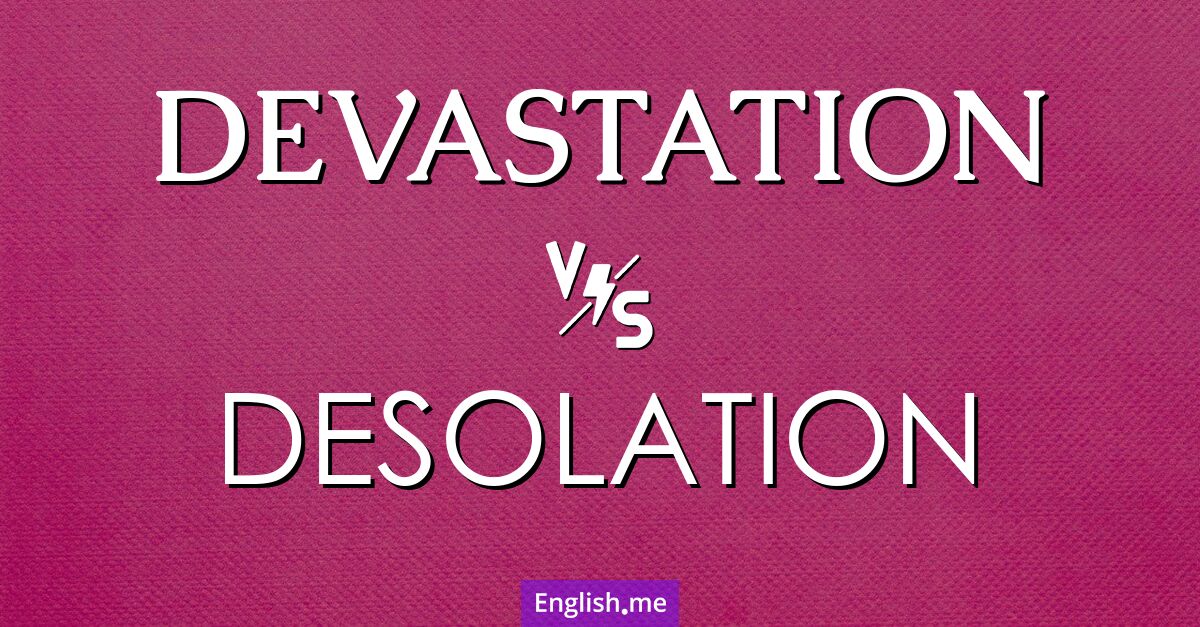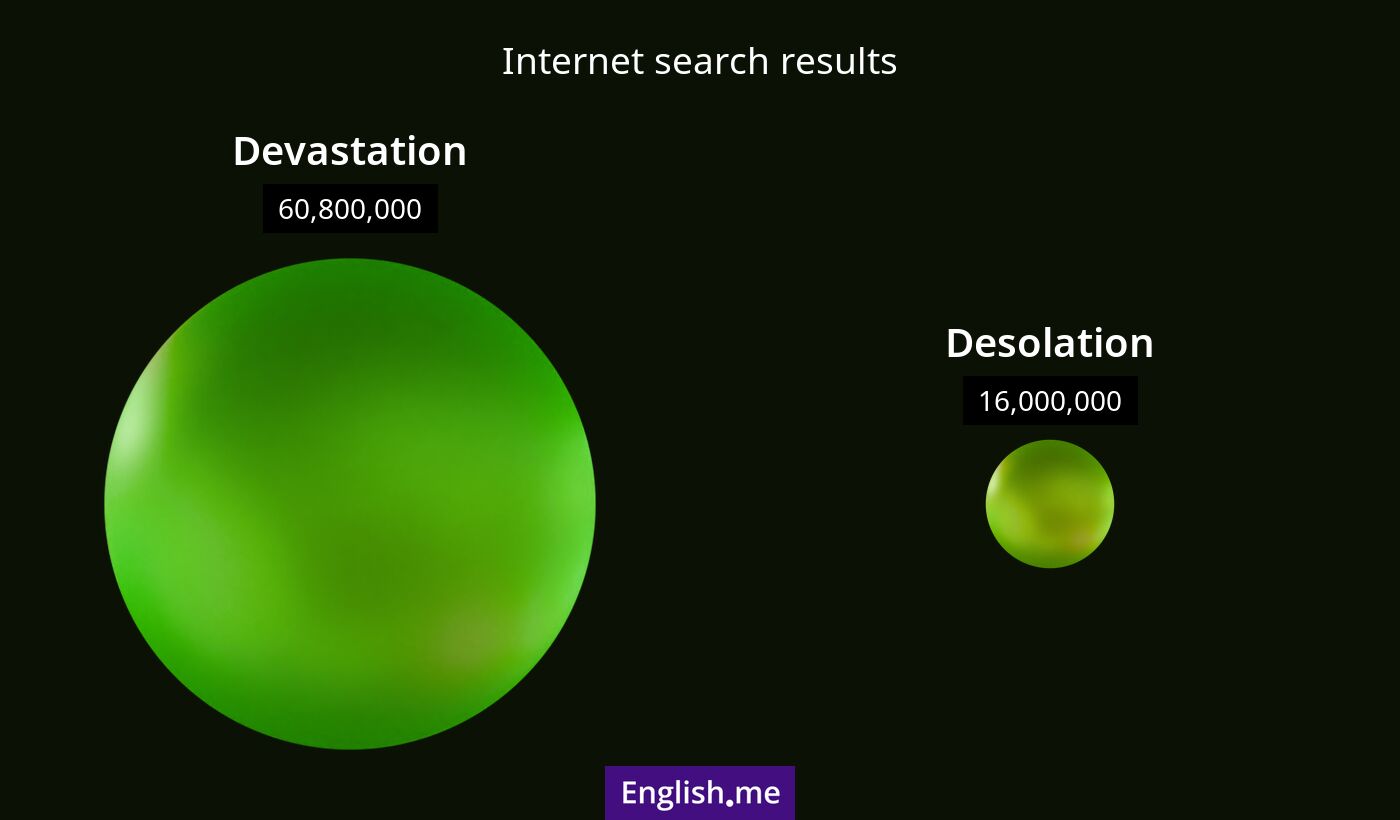"Devastation" vs. "desolation": words of ruin compared

 What is similar?
What is similar?
Both "devastation" and "desolation" refer to states involving destruction and emptiness. They describe situations characterized by ruin, abandonment, or barrenness, often evoking strong emotional responses due to significant loss or damage.
 What is different?
What is different?
"Devastation" typically refers to the act or result of destroying something on a large scale, emphasizing physical destruction caused by events like natural disasters, wars, or catastrophes. It focuses on the tangible aftermath of such events. "Desolation", on the other hand, can refer to both physical emptiness and emotional states of loneliness, sadness, or misery. It often conveys a sense of bleakness or abandonment in a landscape or an individual’s emotional state.
 Which one is more common?
Which one is more common?

 Examples of usage
Examples of usage
Devastation- The hurricane left a trail of devastation across the island.
- The wildfire resulted in the devastation of thousands of acres of forest.
- They were shocked by the devastation caused by the floods.
- She wandered through the desolation of the abandoned city.
- After the tragedy, he was filled with a profound sense of desolation.
- The desolation of the barren landscape was overwhelming.

 English
English español
español française
française italiano
italiano deutsche
deutsche 日本語
日本語 polski
polski česky
česky svenska
svenska Türkçe
Türkçe Nederlands
Nederlands